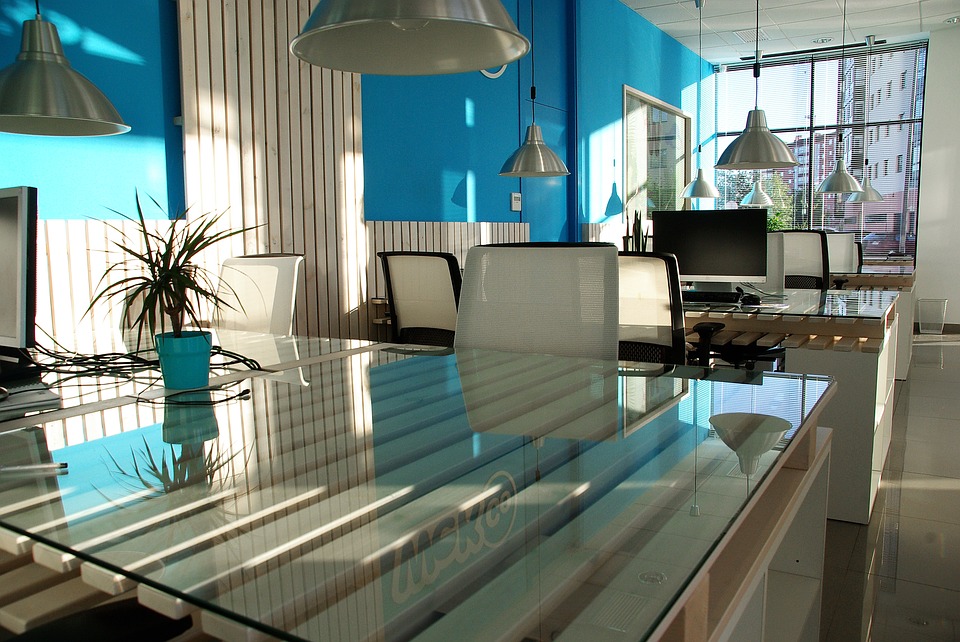
Imagine a workplace that provides both sustainability and comfort for those who work there, a workplace that focuses both on the health of our planet and the health of our people. This may be a dream for many, but it is now becoming a reality around the world, with the creation of thoughtfully and carefully designed co-working spaces.
At its foundations co-working supports the sharing of a workspace, supplies and other resources that provide flexibility and affordability for both small and large organisations and individuals. The culture surrounding co-working is very responsive to creative problem solving and there are several ways in which these spaces have been successful at becoming greener.
Sustainable development in the workplace
Sustainable development is gaining in popularity in cities around the world, including the densely populated, cosmopolitan city of Hong Kong. Traditional office spaces here and in many other cities alike are typically private cubes in high floors with poor ventilation, a lack of natural light, and thermostats cemented at 19°C. Entrepreneurs re-imagined the ideal working environment, which is contrastingly an open and airy, aesthetic space that facilitates conversation and networking. These revolutionary spaces are providing many of the solutions to maintaining a sustainable and comfortable work environment, which focuses on the implementation of sustainable design, the reduction of wastefulness and the creation of an all round eco-friendly space.
Creating and maintaining sustainability
The concept for sustainable design is about creating a healthy and eco design for people’s personal health and the health of our planet, with similar cost efficiency. The main features of focus in terms of sustainability are indoor air quality, energy efficiency, water efficiency, waste reduction and non-toxic and responsible materials. It is also about defining an ethos and creating a community to ensure these spaces only continue to grow and improve in efficiency. Being green is responsible but it can also help save money for everyone in the long run. Overheads can be kept low with sustainable building materials such as up cycle products, durable eco-friendly furnishings and energy efficient light bulbs. The community can also be encouraged to recycle and switch off shared electrical equipment when not in use. Co-working spaces have been designed to be inherently sharing orientated, which results in the basic cutting down of wastefulness.
Why are sustainable workplaces so important?
In particular, there are two major reasons. The first is our environment. Scientific evidence for the warming of our climate system is now unequivocal. The evidence for rapid climate change is compelling with the rise in sea levels and global temperature, the warming oceans and shrinking ice sheets and the increasing number of extreme weather events. The Intergovernmental Panel on Climate Change, a group of 1,300 independent scientific experts from countries all over the world under the auspices of the United Nations, concluded there’s a more than 95% probability that human activities over the past 50 years have warmed our planet.
This suggests that human action could now help slow down or even reverse the damage already begun. This starts with the understanding of these environmental issues and learning how to ensure our home and work environments are designed for greener living. Otherwise, climate change will only continue, temperatures and sea levels will continue to rise, hurricanes will become stronger, there will be more droughts and heat waves and the Artic will likely become ice-free. This is more than likely to affect many of our major cities, which are home to the majority of our offices and work spaces.
The second major reason is our health. A sustainable work environment breeds a healthy, happy culture. Organisations need to get smart. Common sense suggests that people who work in a comfortable environment are likely to be happier, healthier and more productive. Empirical research lends weight to the case for comfort. Poor indoor air quality is attributed to an average productivity loss of 10%. Many other studies have found how employees thrive in co-working spaces, which foster community, collaboration, learning, and sustainability.
The future of sustainable co-working
This is by all means not a quick fix to reversing the dangers of our global warming issues, but it is a small step in the right direction. However, it is a work solution, which many can realistically consider partaking in. Acting together as a community will help secure the futures of generations to come.





Leave a Comment